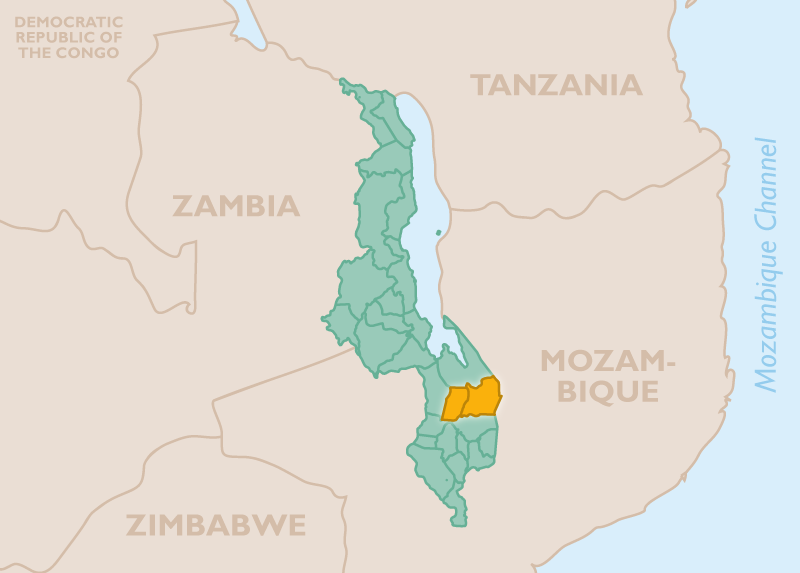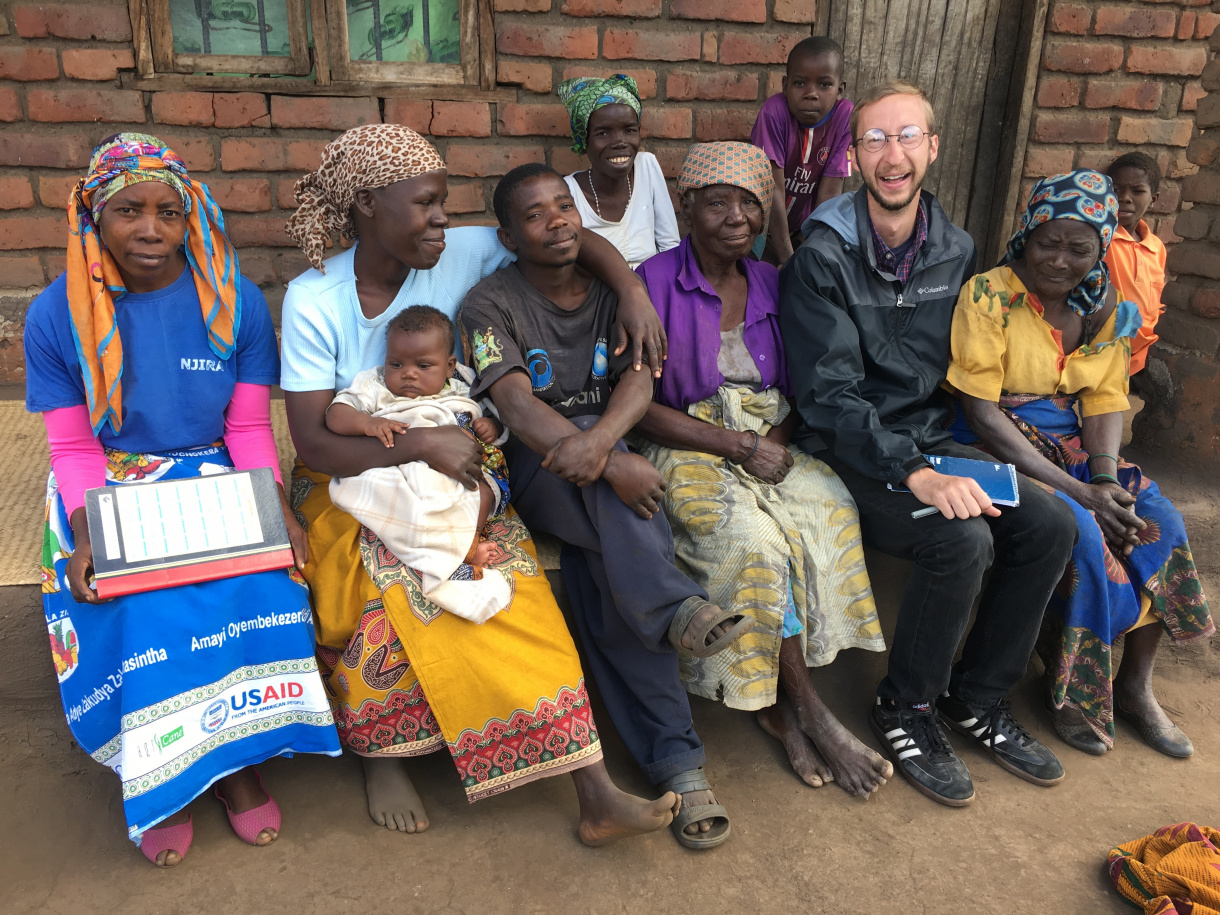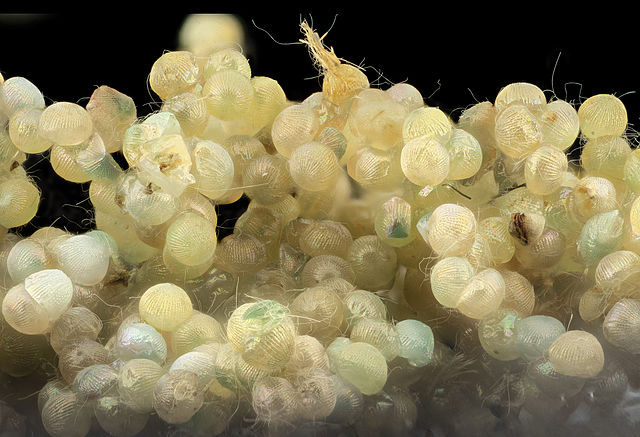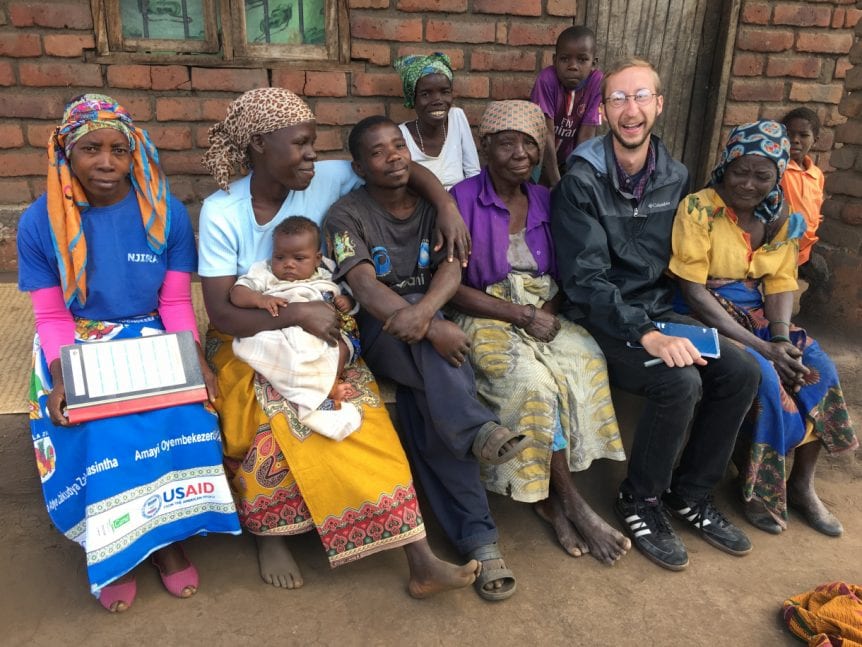Malawi is a landlocked nation in southeastern Africa and home to an estimated 17 million people. Environmental disasters, including floods, droughts, and the recent infestation of Fall Armyworm, are ruinous to smallholder farmers, who make up four-fifths of the country’s population. As a result, one out of every four Malawians live in extreme poverty, and the nation is in the 9th percentile of the Human Development Index.
Project Concern International (PCI) has been working in Malawi since 2007, with a focus on food and nutrition security and mitigating the risk of natural disasters, among other pressing problems. Leland International Hunger Fellow Tanner Roark has been placed with PCI since October 2017 to evaluate the Njira project, which is designed to increase resilience among smallholder farmers.

Map of Malawi in East Africa, with Balaka and Machinga district
“A puzzle that evolves, adapts, and looks different each day you show up to work…”

Tanner Roark (seated, second from right) visits with model couple Esime Siliya and Lombola Sipolo (second and third from left) in Balaka district, Malawi.
A week before I left for Malawi my dad and I started a 1,000-piece puzzle. While I knew we wouldn’t finish the puzzle before I left to work with Project Concern International (PCI) on the Njira Project in southern Malawi, I knew that I could do my best to put a few pieces together and trust that my dad would keep working after I left.
Njira project is a puzzle. However, unlike the puzzle I started before I left the United States, the Njira project is a puzzle with thousands upon thousands of continually moving pieces. A puzzle that evolves, adapts, and looks different each day you show up to work.
Njira project (“Pathways” in Chichewa) is an integrated food security project working in Balaka and Machinga districts in southern Malawi. Njira works in three main purpose areas: agriculture, nutrition, and disaster risk management. This project takes a holistic approach to addressing food insecurity through its tailored pathways approach, which seeks to layer interventions and build resilience on multiple fronts.
As the Knowledge Management & Learning Specialist, I work with advisors, coordinators and facilitators in all three Njira purpose areas with the goal of trying to understand what is working, what is not working, and how we can learn from both scenarios to make better decisions in the future.
This means that I spend a lot of time doing something I love: visiting the field and having conversations with generous and genuine people. Sometimes those conversations are full of joy, like when a WE/VSL group (Women Empowered/Village Savings & Loans) graduates and collectively uses their share-out money to construct a fish pond. However, sometimes these visits are difficult, like when you encounter a distraught family whose home and crops were destroyed during a flash flood.
One of the main projects I have worked on during my time with Njira project is the piloting of a resilience study. The goal of the study was to take an in-depth look to see the impact of the tailored pathways approach and layering of interventions within the Njira project. After collecting data and running the analysis of close to 700 Njira participants, we found that Njira participants involved in the combination of Producer Group + Livestock Group + WE/VSL showed the highest levels of food and income security of any Njira group combination.
“Those best positioned to address community-specific challenges of food and income insecurity are the participants themselves.”

Eggs of Spodoptera frugiperda, the Fall armyworm. Photo courtesty of USGS.
The resilience study pilot is just one example of the ways we learn about how to improve Njira programming. Another example would be our engagement with government agriculture extension officers and lead farmers in combating outbreaks of Fall Armyworm, a pest known for destroying numerous crop varieties, including Malawi’s staple crop, maize. The Njira Knowledge Management team works to create channels of communication between farmers, extension officers and other stakeholders to monitor Fall Armyworm outbreaks, identify infestation hot spots, and provide valuable information for mitigating negative impacts.
There is much to be gained from these interactions. What we learn from the field helps Njira advisors adapt their approaches to better serve the communities we work with. However, those best positioned to address community-specific challenges of food and income insecurity are the participants themselves. Therefore, it is my goal to tap into these communities’ wealth of knowledge and unlock their potential by cultivating an enabling environment of discussion and continual learning.
Njira is a puzzle, but it has many hands and minds working to solve it. While I have had the opportunity to step into the project when many of the pieces were already put into place, I hope I have done my part to help the team think about the puzzle in a new light. When the Njira puzzle is completed, we will be one step closer to enhancing health, ending hunger and overcoming hardship.

